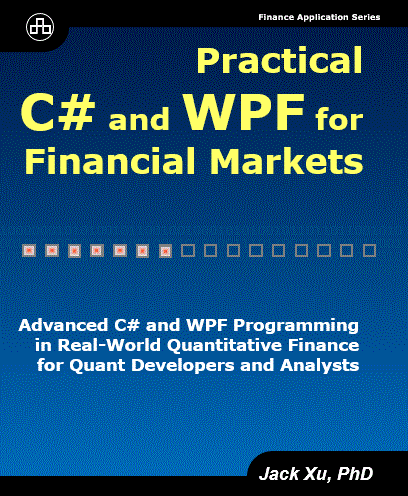-
Notifications
You must be signed in to change notification settings - Fork 2k
Published Books
by Mathias Brandewinder
Machine Learning Projects for .NET Developers shows you how to build smarter .NET applications that learn from data, using simple algorithms and techniques that can be applied to a wide range of real-world problems. You will code each project in the familiar setting of Visual Studio, while the machine learning logic uses F#, a language ideally suited to machine learning applications in .NET. If you are new to F#, this book will give you everything you need to get started. If you are already familiar with F#, this is your chance to put the language into action in an exciting new context.
by Jamie Dixon
Mastering .NET Machine Learning is packed with real-world examples to explain how to easily use machine learning techniques in your business applications. You will begin with an introduction to F# and prepare yourselves for machine learning using the .NET Framework. You will then learn how to write a simple linear regression model and, forming a base with the regression model, you will start using machine learning libraries available in .NET Framework such as Math.NET, numl, and Accord.NET with examples. Next, you are going to take a deep dive into obtaining, cleaning, and organizing your data. You will learn the implementation of k-means and PCA using Accord.NET and numl libraries. You will be using Neural Networks, AzureML, and Accord.NET to transform your application into a hybrid scientific application. You will also see how to deal with very large datasets using MBrace and deploy machine learning models to IoT devices so that the machine can learn and adapt on the fly.
by Sudipta Mukherjee
The F# functional programming language enables developers to write simple code to solve complex problems. With F#, developers create consistent and predictable programs that are easier to test and reuse, simpler to parallelize, and are less prone to bugs. If you want to learn how to use F# to build machine learning systems, then this is the book you want. Starting with an introduction to the several categories on machine learning, you will quickly learn to implement time-tested, supervised learning algorithms. You will gradually move on to solving problems on predicting housing pricing using Regression Analysis. You will then learn to use Accord.NET to implement SVM techniques and clustering. You will also learn to build a recommender system for your e-commerce site from scratch. Finally, you will dive into advanced topics such as implementing neural network algorithms while performing sentiment analysis on your data.
by Jack Xu PhD
Practical C# and WPF for Financial Markets provides a complete explanation of .NET programming in quantitative finance. It demonstrates how to implement quant models and backtest trading strategies. It pays special attention to creating business applications and reusable C# libraries that can be directly used to solve real-world problems in quantitative finance. The book contains:
- Overview of C#, WPF programming, data binding, and MVVM pattern, which is necessary to create MVVM compatible .NET financial applications.
- Step-by-step approaches to create a variety of MVVM compatible 2D/3D charts, stock charts, and technical indicators using my own chart package and Microsoft chart control.
- Detailed procedures to price equity options and fixed-income instruments, including European/American/Barrier options, bonds, and CDS, as well as discussions on related topics such as cash flows, term structures, yield curves, discount factors, and zero-coupon bonds.
- Introduction to linear analysis, time series analysis, and machine learning in finance, which covers linear regression, PCA, SVM, and neural networks using famous Accord.NET machine learning Framework.
- In-depth descriptions of trading strategy development and backtesting, including strategies for single stock trading, stock pairs trading, and trading for multi-asset portfolios.
Help improve this wiki! Those pages can be edited by anyone that would like to contribute examples and documentation to the framework.
Have you found this software useful? Consider donating only U$10 so it can get even better! This software is completely free and will always stay free. Enjoy!



